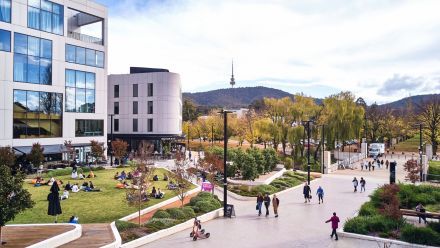COVID-19 pandemic leaves permanent scar on retail workers
The experiences and concerns of these workers have tended to be overlooked or underestimated by the media and governments, relative to other frontline workers
The COVID-19 pandemic has taken a massive toll on Australian retail workers, with more than one-in-two experiencing increased hostility and abuse from customers, according to a new report from The Australian National 51°å¿üë½ (ANU) and 51°å¿üë½ of Sydney.
The report is one of the first to look at the impacts of the pandemic on essential workers thrown into the frontline with little preparation and a high risk of exposure to the virus.
highlights the challenges faced by retail, fast-food and distribution workers during the pandemic and recent lockdowns, as well as COVID-19's impact on job security and worker-customer relations.
Lead author Professor Ariadne Vromen, from the ANU Crawford School of Public Policy, said 56 per cent of retail workers experienced a notable increase in customer abuse during the pandemic.
"The experiences and concerns of these workers have tended to be overlooked or underestimated by the media and governments, relative to other frontline workers," she said.
"The way we as a community engage with frontline workers should always be courteous and respectful. At the same time there are now long-term policy challenges on how to ensure quality, secure and safe employment across the Australian workforce."
Professor Vromen said the retail sector can learn some valuable lessons from the pandemic well beyond the battles in supermarket aisles for toilet paper and other essential items.
"Questions remain about why there has been continued job insecurity and unpredictable hours in such a significant sector, and why workers were not redeployed into new online sales and warehouse roles," Professor Vromen said.
"Women, linguistically diverse people and young people working in retail were also much more likely to report increased customer abuse during the pandemic, while also being much more likely to say they felt stressed enforcing customer COVID-19 safety compliance."
Professor Vromen also said the pandemic precipitated a rapid adoption of new, contactless technologies, which promise to reshape the retail sector.
"Despite initial job losses and reduced working hours in the sector, the pandemic has been highly lucrative for many areas in retail, with record sales in food, household and recreational goods, and a shift to online shopping," she said.
Report co-author, Professor from the said the retail sector has been profoundly, yet unevenly, impacted by the COVID-19 crisis.
"Workers feel disrespected and report that they have been on the receiving end of disrespectful treatment, threatening behaviour and bad manners from retail customers. This was especially the case for women, young workers and culturally and linguistically diverse workers," Professor Cooper said.
"As we come into the Christmas season it is worth a reminder that the mostly young, often low paid and highly feminised retail workforce should not bear the brunt of customer abuse. Managers and employers should be taking a zero tolerance approach to poor treatment of their staff."
The report is the result of a representative online survey of more than 1,100 retail, fast-food and distribution workers in September during the height of lockdowns in many parts of Australia. The team of researchers also conducted 30 interviews with senior stakeholders from across the industry.
Almost half (49 per cent) of retail workers felt their job security had decreased as a result of the pandemic.
Those who were likely to feel more insecure during the pandemic were:
- women (51 per cent)
- those under 30 (56 per cent)
- those from a non-English-speaking background (60 per cent)
- frontline (51 per cent) and casual workers (55 per cent)
- those working in a locked-down region (53 per cent).
is based on the work of Professor Ariadne Vromen and Serrin Rutledge-Prior from the ANU Crawford School of Public Policy, and Professor Rae Cooper, Dr Briony Lipton, Dr Meraiah Foley from the 51°å¿üë½ of Sydney Business School. Their work is part of the ARC Linkage Project, Designing Gender Equality into the Future of Work, which is investigating how women and men understand and experience the changing nature of work and their hopes and fears for the future.


